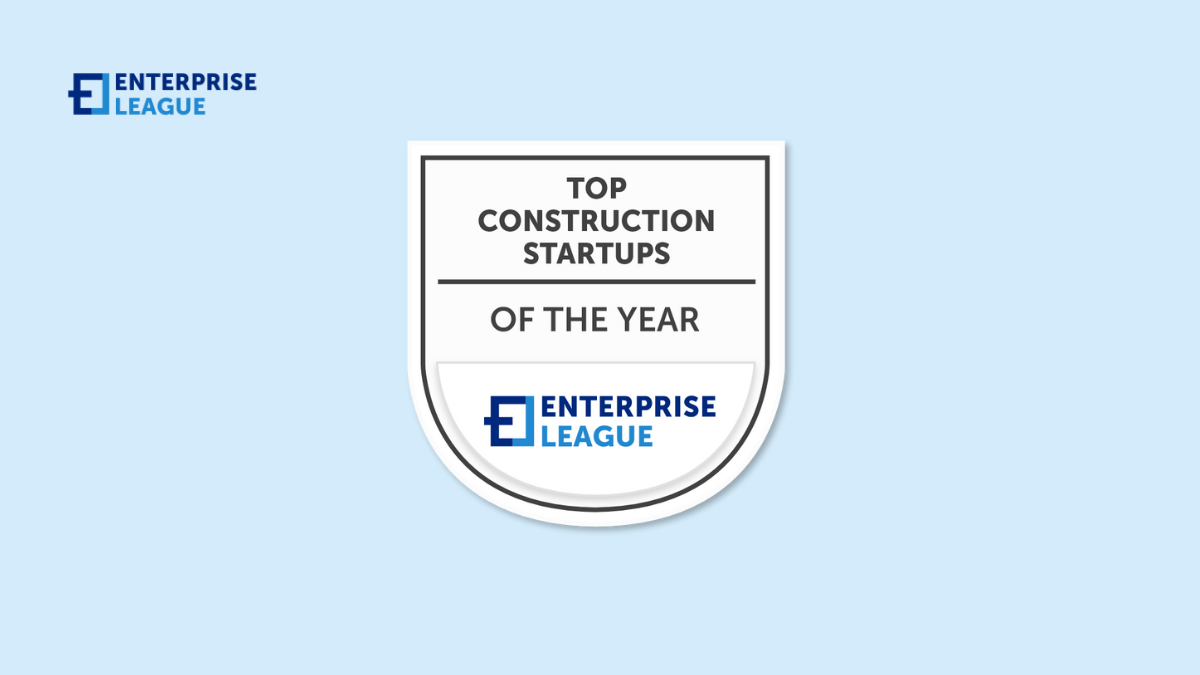The construction industry, though often perceived as slow to adopt new technologies, has seen a surge of innovative construction startups looking to modernize and optimize the way we design, build, and maintain constructions. Key areas of focus for these construction startups include improving efficiency, sustainability, safety, costs, timelines, and quality in the design, planning, and building process.
Top construction startups
Complete list of construction startups that are worth knowing:
UpCodes
Founded in 2016, UpCodes offers a searchable database of building codes plus AI-powered code analysis. Users can lookup requirements, automatically check designs for violations, and reference related codes.
By centralizing fragmented code information, UpCodes aims to make compliance simpler for project teams. Their tools integrate code reference into digital workflows instead of manual checks.
ProperGate
Founded in 2021, ProperGate digitizes and centralizes delivery scheduling, status notifications, project updates, and more. Teams can manage vendors, shipments, and site access remotely via the platform.
By removing friction from material arrivals, ProperGate helps accelerate builds while reducing waste. Their unified system provides real-time supply chain visibility to keep projects on track.
Trade Hounds
Launched in 2019, Trade Hounds provides an on-demand hiring solution tailored to construction industry needs. Contractors can quickly fill short-term positions or ongoing projects with rated tradespeople on the app.
For contractors facing urgent hiring needs, Trade Hounds delivers. Their mobile access to local skilled labor alleviates staffing pain points. As talent mismatches disrupt work, Trade Hounds taps into shifting labor dynamics.
Buildcon
Founded in 2018, Buildcon centralizes task management, communication, reporting, and documentation on one collaborative system. Teams can assign jobs, share files, track issues, and get progress oversight.
By removing information silos, Buildcon aims to improve productivity and accountability across construction workflows. Their unified platform provides the transparency needed to keep builds on time and budget.
Branch
Founded in 2014, Branch leverages robotic additive printing to construct sustainable structures with less waste. Their patented process prints cells that are then filled with concrete for walls and structural components.
By pioneering printable building-scale nodes, Branch unlocks radical new architectural possibilities with climate benefits. Their digitally driven process cuts materials use and labor compared to conventional construction.
Ekotrope
Founded in 2009, Ekotrope provides HERS rating services and green building certifications for new homes. Beyond energy audits, they consult on cost-effective specifications to meet efficiency goals during design.
Ekotrope also trains raters and offers tracking software. By streamlining certification processes, they enable builders to more easily market sustainability.
Faber Connect
Launched in 2019, Faber Connect provides on-demand access to qualified candidates. Workers create profiles highlighting skills and availability. Contractors post positions and instantly tap into the relevant worker pool.
By connecting verified talent with real-time needs, Faber streamlines hiring for contract roles. Workers gain a direct channel to new opportunities with trusted firms. As staffing needs rise, Faber delivers targeted recruiting solutions.
Safesite
Founded in 2016, Safesite offers a central platform to document, analyze, and act on safety data. Teams can report issues, track recurring risks, and monitor trends. The system then triggers corrective actions like training.
By connecting safety workflows, Safesite aims to make environmental protection an organizational priority. Their real-time data empowers the quick interventions required to uphold standards.
Knowify
Founded in 2016, Knowify centralizes project cost tracking, bid creation, contract administration, and task planning on one user-friendly system accessible from any device.
By coordinating key workflows, Knowify provides an integrated view of company and project performance. Their operational visibility enables data-driven decisions and proactive management.
KEWAZO
Founded in 2019, KEWAZO developed cranes and hoists that integrate with scaffolding to lift and place poles and platforms. By handling heavy lifting, the robots reduce worker strain and exertion-related injuries.
KEWAZO aims to improve both productivity and safety for one of construction’s most labor-intensive tasks. Their robotic solutions provide a compelling alternative to inefficient, hazardous manual processes involving scaffolding.
AEInnova
Founded in 2015, AEInnova leverages energy harvesting innovations that draw enough power for IoT devices from existing vibrations, electromagnetic waves, wind, and other signals in the environment.
This eliminates the cost, waste and reliability issues associated with powering remote sensors via battery or cable. By tapping into ambient energy streams, AEInnova enables easier industrial IoT adoption with less hassle and maintenance.
bobbie
Founded in 2020, bobbie centralizes bidding, quoting, approvals, and other supply chain workflows on a unified platform. Teams can seamlessly manage sourcing, ordering, and inventory.
By removing inefficiencies across procurement, bobbie helps to mitigate project delays and cost overruns. Their simplified workflows and supplier access enable just-in-time delivery of needed materials.
CivilGrid
Founded in 2017, CivilGrid provides a searchable database of environmental conditions, terrain surveys, BIM models, utility mappings, permitting docs and more. Users can access a unified view of infrastructure data.
By assimilating scattered construction datasets, CivilGrid creates an invaluable reference model for planning and building. Development powered by their comprehensive intelligence promises greater resilience and efficiency.
comstruct
Founded in 2021, comstruct centralizes bidding, contracting, ordering and inventory management between general contractors and vendors on one cloud-based network. Teams collaborate while optimizing material costs and timing.
By removing procurement inefficiencies, comstruct helps accelerate projects and reduce overages. Their integrated system provides the visibility needed to keep jobs on budget. For builders relying on ineffective manual procurement, comstruct delivers process upgrades tailored to construction needs.
CONSTAL
Founded in 2020, CONSTAL maintains a network of screened, verified subcontractors covering all project needs – from electricians and plumbers to landscapers and roofers. General contractors can quickly contract pre-vetted crews on-demand.
By providing on-call access to prequalified specialty teams, CONSTAL solves major bottlenecks in staffing workflows. Their model brings speed and assurance when assigning critical jobs. For contractors facing uncertainty around hiring reliable help, CONSTAL delivers visibility into proven talent.
EMerald Geomodelling
Founded in 2020, EMerald ingests survey data to generate detailed 3D maps identifying underground conditions. Planners access interactive visuals rather than traditional static reports.
By leveraging AI for advanced earth modeling, EMerald provides planners and engineers with invaluable visibility to calibrate designs. Their technology unlocks safer, optimized infrastructure aligned with the environmental context.
Exodigo
Founded in 2018, Exodigo created autonomous robots equipped with sensors and cameras that navigate underground pipes and conduits. As they traverse infrastructure, the robots collect structural, visual, and environmental data.
By enabling non-invasive discovery, Exodigo provides a cost-effective way to inspect assets and identify risks proactively. Their technology saves the time and expense of destructive inspection methods.
Living Loop
Founded in 2021, Living Loop combines lines for driverless pods with enclosed landscaping and agricultural sections supported by collected rainwater and solar power. This decentralized corridor provides transit, urban farming, energy, and more.
By intertwining mobility and ecological functions, Living Loop aims to inspire regenerative cities planned around environmentally symbiotic structures. Their product pioneers infrastructure serving multiple vital needs.
Part3
Founded in 2022, Part3 offers a shared workflow platform linking design teams with builders and trades. This unified system aims to remove silos and inefficiencies across project phases.
Key features include document management, BIM coordination, RFIs, submittals, and mobile capabilities. By integrating processes, Part3 empowers job site transparency and accountability.
Dusty Robotics
Founded in 2018, Dusty developed robotically-controlled equipment that interprets 3D AEC models to complete jobs like cutting rebar and finishing concrete. This closing of the digital loop aims to improve productivity and quality.
By automating translation of virtual to physical, Dusty enables more seamless workflows from design to build. Humans work in tandem with precision robotic fabrication tailored to each structure’s digital DNA.
Conclusion
The construction startups leading the charge may be different down the road, but one thing’s constant – high-tech construction is the future. Companies using things like automation, 3D modeling, and predictive data analytics are changing the game.
Discover more creative startups that might interest you:
- Mindblowing medical solutions developed by the the best medical device startups.
- Must-know NFT startups that are on the forefront of this new industry.
- Must-know cannabis startups that contribute to an industry marked by innovation and growth.
- Innovative vr startups shaping virtual world with amazing innovations.
- Amazing DTC startups improving your retail experience.
Related Articles
10 business tips for beginners to help you build a healthy brand
Starting a business can be quite the challenge especially if you’re all new to entrepreneurship. These business tips for beginners will help you set off on the right foot.
SEO writing: Five foolproof tips to secure you the first page
When it comes to SEO writing it’s more guessing and less evidence about what works and what doesn’t. Luckily, we know what can really help you reach the first page.
How to onboard a new employee: Tips for quick integration
Your guide to smoother employee onboarding where you will find practical strategies that help new hires feel welcome and become productive team members faster.
10 business tips for beginners to help you build a healthy brand
Starting a business can be quite the challenge especially if you’re all new to entrepreneurship. These business tips for beginners will help you set off on the right foot.
SEO writing: Five foolproof tips to secure you the first page
When it comes to SEO writing it’s more guessing and less evidence about what works and what doesn’t. Luckily, we know what can really help you reach the first page.








